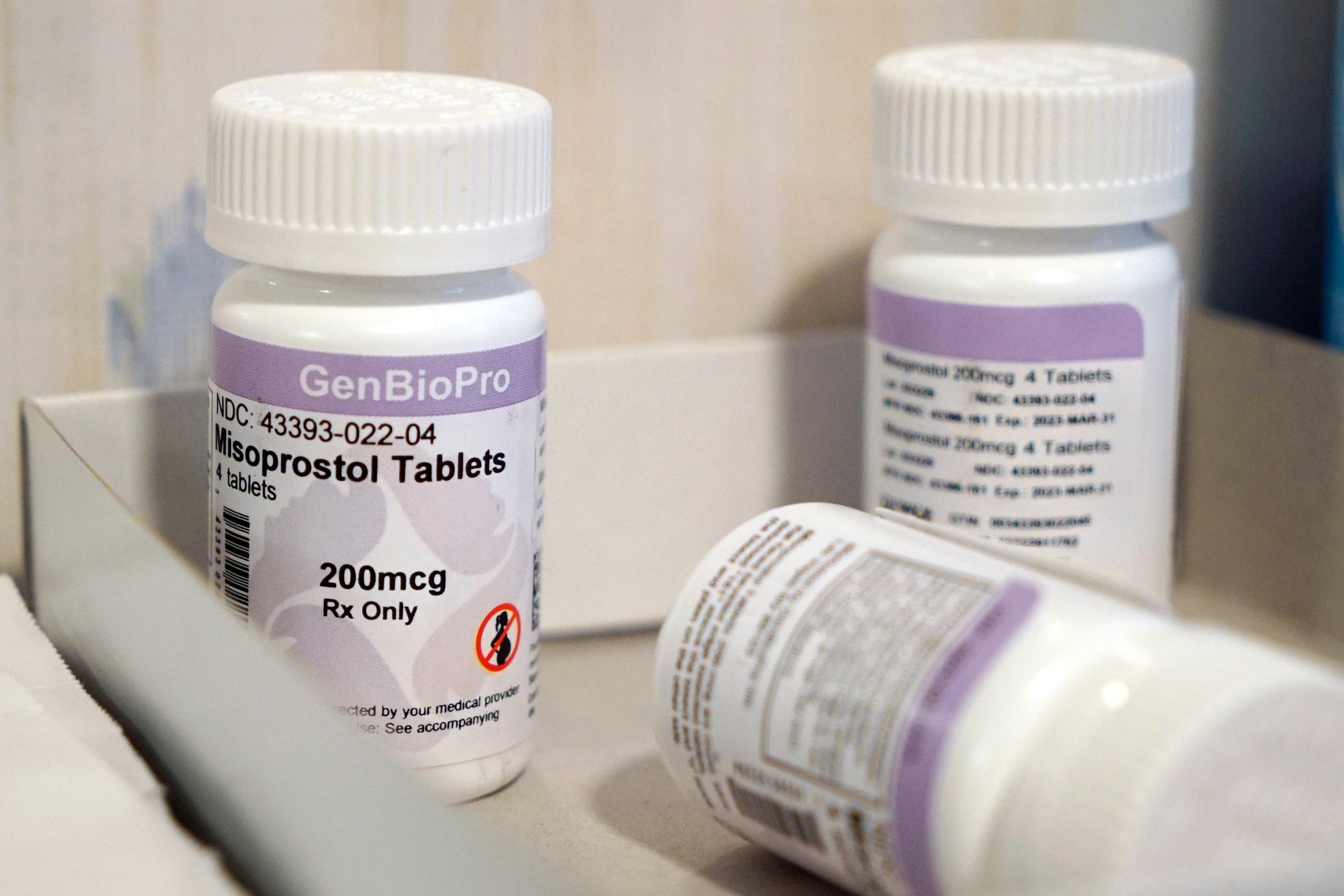White House plots strategy to counter abortion pill ruling
White House officials are warning that access to nearly any medication is in jeopardy after a federal judge in Texas ordered that a pill commonly used for abortions be pulled off the market

Your support helps us to tell the story
From reproductive rights to climate change to Big Tech, The Independent is on the ground when the story is developing. Whether it's investigating the financials of Elon Musk's pro-Trump PAC or producing our latest documentary, 'The A Word', which shines a light on the American women fighting for reproductive rights, we know how important it is to parse out the facts from the messaging.
At such a critical moment in US history, we need reporters on the ground. Your donation allows us to keep sending journalists to speak to both sides of the story.
The Independent is trusted by Americans across the entire political spectrum. And unlike many other quality news outlets, we choose not to lock Americans out of our reporting and analysis with paywalls. We believe quality journalism should be available to everyone, paid for by those who can afford it.
Your support makes all the difference.White House officials warned on Wednesday that access to nearly any medication is in jeopardy after a federal judge ordered that a pill commonly used for abortions be pulled off the market, and they said they're consulting with lawmakers, doctors and pharmacies to fight the ruling.
Texas Judge Matthew Kacsmaryk’s decision to restrict access to the abortion pill mifepristone threatens to upend abortion access for the entire country by Friday if another court doesn’t step in. The Justice Department appealed the ruling on Monday.
Vice President Kamala Harris will meet Wednesday with President Joe Biden’s Cabinet to discuss other ways the administration can respond to the latest in a string of blows to abortion access in the U.S. The meeting will include Attorney General Merrick Garland and Health and Human Services Secretary Xavier Becerra, according to two senior White House officials.
For months, the White House has struggled to counter the abortion restrictions Republican-led states have rolled out since the U.S. Supreme Court overturned the constitutional right to the medical procedure last June.
Many abortion clinics, some offering medication-only abortions, have relocated to Democratic-leaning states, preserving some sort of access for millions of women around the country. Now, the Biden administration is staring down a challenge to abortion access that could alter how women get abortions nationwide.
Kacsmaryk’s decision would revoke the Food and Drug Administration’s approval of mifepristone, one of two drugs used in what is considered the most effective and safest way to carry out a medication abortion. There is no precedent for a lone judge to overrule the FDA’s medical decisions, and pharmaceutical executives said Monday they fear the ruling could jeopardize the approval of vaccines and other medications.
A competing ruling by a federal judge in Spokane, Washington, issued on the same day directed federal officials not to hinder access to the drug in at least 17 states where Democrats sued to keep the drug’s availability intact. The issue is likely to be decided by the Supreme Court.
Meanwhile, the Biden administration is still trying to stifle strict new laws that more than a dozen states have imposed to outlaw abortions. The White House will roll out a proposed rule that aims to limit the information law enforcement and state officials can collect from health care providers and insurers to pursue criminal, civil or administrative investigations into women who flee their home states to seek abortions elsewhere.
Under the proposed rule, health care organizations would be prohibited from sharing personal medical records with authorities for investigations related to abortions in states where a woman legally obtained the care. As it stands, health providers and insurers can be compelled to turn over medical records with a court order.
Doctors around the country have voiced concerns about protecting that medical information from law enforcement officials, said Melanie Fontes Rainer, the director of the office of civil rights at HHS.
“We’ve had many conversations with providers, major medical associations and patient advocates about what they’re seeing on the ground and how the federal government can be helpful in ensuring medical records are kept private,” she said in a statement.
___
Follow the AP's coverage of abortion at https://apnews.com/hub/abortion.